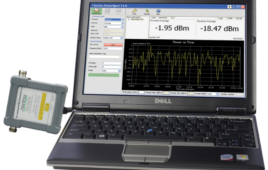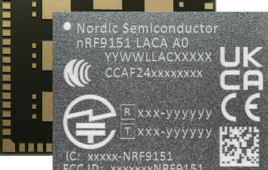A look at how selected companies providing computers, components, services and related software are faring:
Jan. 11: Research groups Gartner and IDC say personal computer shipments dipped during the final three months of last year amid a shortage of key parts or compelling innovations. Based on preliminary figures, Gartner is pegging the worldwide shipment decline at 1.4 percent from a year earlier, and IDC calculated the decrease at 0.2 percent. The slight downturn had been expected for several reasons, chiefly the growing popularity of mobile devices. That was compounded in the fourth quarter by hard-drive shortages because of flooding in Thailand and the fact that many products were either uninspiring or overpriced, according to analysts at Gartner and IDC.
Jan. 19: IBM Corp. reports fourth-quarter earnings and an outlook for the year that were stronger than expected. The latest results were helped by higher revenue and profit margins in the technology icon’s lucrative software and services segments. The company offered a welcome sign of stability amid the global economic turmoil that’s prompting worries about a slowdown in technology spending by businesses and governments, who are IBM’s customers.
Intel Corp., the world’s largest chip-maker, says profit rose 6 percent in the latest quarter, even as hard-drive shortages held back PC makers’ chip orders. Intel’s results, like Apple’s in recent quarters, have benefited from the economic surge in China and other developing countries, where many people are buying PCs for the first time.
Microsoft Corp. reports flat earnings in the latest quarters, boosting sales of servers, Xbox games and its Office productivity software while trimming losses at its Bing search engine. The quarter wasn’t as bad as some industry analysts feared, given that flooding in Thailand constricted the supply of hard disk drives used in personal computers. Microsoft also witnessed a wave of consumers buying Apple Inc.’s popular iPad, which cut into sales of miniature laptop PCs known as netbooks.
Jan. 23: Texas Instruments Inc. reports results that topped analyst estimates. The company credits improving demand for most of the company’s products, leading TI to believe that the company is moving beyond a downturn that undercut its financial performance for most of last year. The company, however, offered a tepid forecast for the first quarter of this year.
Hard disk drive maker Western Digital Corp. says its second-quarter net income fell 36 percent as it took a $199 million charge related to flooding in Thailand.
Jan. 24: Apple Inc., which had uncharacteristically tepid sales in the July-to-September quarter, reports results that vastly exceed analyst estimates and set new records. Apple Inc. says it sold 37 million iPhones in the quarter, more than twice as many as it sold a year earlier. For the first time, iPhones accounted for more than half of Apple’s sales. Sales of iPads were also strong, with more than 15 million shipped, again more than double from a year earlier. Sales of Mac computers were more modest, but still growing. Apple sold 5.2 million Macs during the quarter, up 26 percent from a year earlier.
EMC Corp., the world’s largest maker of data-storage computers, provides further evidence that the shift to cloud computing is creating a favorable business climate. With cloud computing, services and software are run on computers located elsewhere instead of on a single computer at a desk. EMC’s results for the latest quarter surged past analyst estimates while the forecast for this year called for double-digit growth in earnings and revenue.
Advanced Micro Devices Inc. reports a fourth-quarter loss, after the chip-maker wrote down the value of an investment in its former GlobalFoundries unit by $209 million and recorded $98 million in restructuring costs. AMD lost 24 cents per share, compared with earnings of 50 cents per share a year earlier. Excluding one-time items, AMD says it earned 19 cents per share in the latest quarter.
Altera Corp., a maker of computer chips, says net income fell 37 percent from a year earlier. Revenue fell 18 percent. The company says “industry conditions” led to declines in the quarter, but growth for the full year was up 6 percent.
Jan. 25: Xerox Corp.’s business of providing services to businesses, to help them manage documents and processes, was the star of the quarter, with revenue up 6 percent. That was balanced by a 5 percent drop in sales of machines and supplies.
SanDisk Corp., which makes memory chips for electronics such as smartphones and tablets, says fourth-quarter net income fell 42 percent on higher costs and one-time charges. Adjusted results beat expectations, but gross margin — the percentage of each dollar in revenue a company actually keeps — was hurt by higher costs.
LSI Corp., which makes semiconductors for data storage and networking, gives a first-quarter forecast above Wall Street expectations and reassures investors that the troubles from hard drive shortages are under control.
Jan. 31: Seagate Technology PLC, a maker of hard disk drives, says net income in the latest quarter nearly quadrupled to $563 million. Revenue grew 3 percent to $2.59 billion. Both its revenue and adjusted profit soundly beat Wall Street expectations. Seagate earlier said that it had shipped more hard drives than expected, despite troubles at its manufacturing plants from flooding in Thailand.
Feb. 1: Qualcomm Inc., a maker of chips for mobile devices, says global demand for smartphones has boosted sales. The company also says new 3G and 4G wireless networks should increase its sales opportunities during 2012. It set its earnings and revenue forecasts above analyst expectations for the current quarter.
Feb. 8: Lenovo Group Ltd. says quarterly profit grew by more than half, but it warns that hard drive costs would remain high amid a global shortage caused by flooding in Thailand. The No. 2 PC maker says it’s confident of closing in on the top spot as it reports strong sales growth across all major markets even as it focuses more attention on the burgeoning smartphone and mobile Internet market.
Feb. 15: Nvidia Corp. reports adjusted earnings of 26 cents per share, above the 20 cents expected by analysts. Revenue of $953 million was slightly above expectations of $951 million. The company credits demand from gamers and professionals for machines that use its graphics-processing chips. But its outlook disappointed. Revenue for the current quarter was projected at $900 million to $930 million, below the $944 million expected by analysts surveyed by FactSet.
NetApp Inc., which makes data-storage management systems, reports adjusted profit and revenue for the November-January period, its fiscal third quarter, that matched analyst expectations. The company says it signed up a record number of new customers.
Feb. 16: Applied Materials Inc., a maker of chip equipment, says adjusted profit in the recent quarter topped Wall Street expectations. Management gave an upbeat outlook for the current quarter. The company says global demand for mobile devices is driving investment by its semiconductor customers. Applied Materials serves as a barometer for technology spending because major makers of chips and LCD screens and even solar cells are big customers who depend on its equipment.
Feb. 21: Dell Inc. says fourth-quarter earnings fell 18 percent as the computer maker had a tougher time selling its products to cost-cutting government agencies and to consumers who have been embracing sleeker options from rival Apple Inc.
Feb. 22: Hewlett-Packard Co., the maker of PCs and printers, says sales to consumers dropped 23 percent from a year earlier. HP is the world’s largest maker of PCs, but it’s been performing badly as buyers in the industrialized world are turning their attention to Apple’s iPads and Macs. Meanwhile, it hasn’t been able to capture the growing appetite for PCs in emerging markets. Revenue from commercial businesses fell 4 percent.
Feb. 23: Salesforce.com Inc. says it closed four times the number of seven-figure deals in the fourth quarter compared with a year earlier. In the current quarter, the company got its first nine-figure deal ever.
Marvell Technology Group Ltd. says its profit sank 64 percent in its fourth quarter and gives a lackluster sales outlook. The company expects hard disk memory sales to bounce back as much as 20 percent, but anticipates wireless segment sales to decline sequentially in the current quarter due to seasonal factors. It also expects networking sales to be flat.
Feb. 29: Microsoft begins letting consumers try out its upcoming touch-based Windows 8 operating system. It aims to power a new wave of tablet computers and traditional PCs designed to counter Apple’s big gains in the market through its Macs and iPads.
March 7: Apple announces a third version of its iPad.
March 8: Chip-maker Texas Instruments lowers its first-quarter guidance, citing weakened demand for wireless products.
Research firm Gartner forecasts that PC shipments will grow 4.4 percent worldwide this year after a small drop in 2011. That’s relatively weak growth as consumer attention turns to tablets.
March 20: Oracle Corp. says sales of new software licenses picked up in its latest quarter, helping to ease concerns about the company’s future as it loses customers to rivals offering less expensive alternatives. Total revenue grew just 3 percent in the December-February period. But revenue from new software licenses went up 7 percent, helping to offset defections to companies that specialize in Internet-based software known as cloud computing.
March 22: Memory chip maker Micron Technology Inc. reports a $224 million net loss in the quarter through March 1 as sales fell. The net loss came to 23 cents per share, larger than the 19 cents per share net loss expected by analysts polled by FactSet.
Thursday: Micron adds to the net loss by $58 million after announcing a settlement with Oracle in a price-fixing case.
AP: www.ap.org
Posted by Janine E. Mooney, Editor
April 03, 2012




